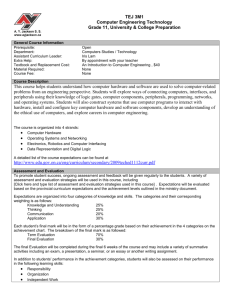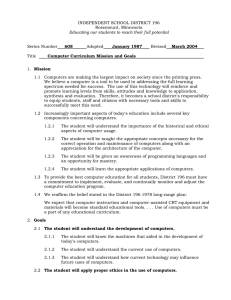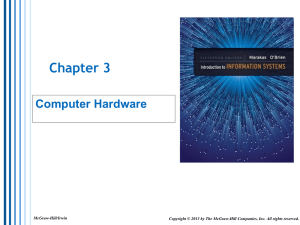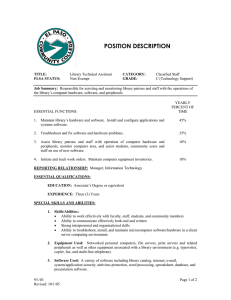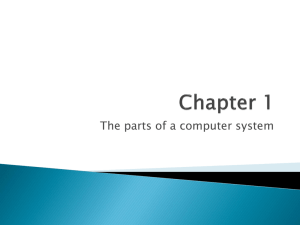AT70.01 Computer Organization and Architecture
advertisement
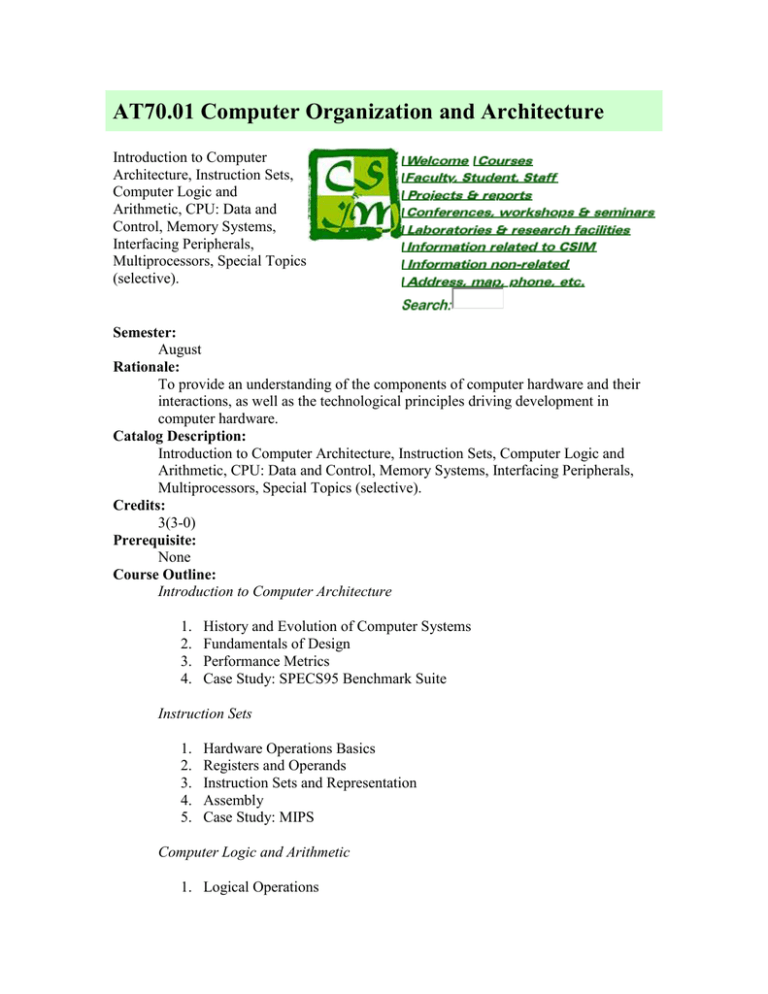
AT70.01 Computer Organization and Architecture Introduction to Computer Architecture, Instruction Sets, Computer Logic and Arithmetic, CPU: Data and Control, Memory Systems, Interfacing Peripherals, Multiprocessors, Special Topics (selective). Semester: August Rationale: To provide an understanding of the components of computer hardware and their interactions, as well as the technological principles driving development in computer hardware. Catalog Description: Introduction to Computer Architecture, Instruction Sets, Computer Logic and Arithmetic, CPU: Data and Control, Memory Systems, Interfacing Peripherals, Multiprocessors, Special Topics (selective). Credits: 3(3-0) Prerequisite: None Course Outline: Introduction to Computer Architecture 1. 2. 3. 4. History and Evolution of Computer Systems Fundamentals of Design Performance Metrics Case Study: SPECS95 Benchmark Suite Instruction Sets 1. 2. 3. 4. 5. Hardware Operations Basics Registers and Operands Instruction Sets and Representation Assembly Case Study: MIPS Computer Logic and Arithmetic 1. Logical Operations 2. Arithmetic Operations 3. Floating Point Computation 4. Case Study: MIPS CPU: Data and Control 1. 2. 3. 4. 5. 6. Datapaths Multiprogramming Multicycling Pipelining Data Hazards, Forward and Stalls Case Study: Implementing MIPS, Pentium Pro, PowerPC 604 Memory Systems 1. 2. 3. 4. Memory Hierarchy and Organization Virtual Memory Cache and High-Speed Memory Case Study: Pentium Pro, PowerPC 604 Interfacing Peripherals 1. 2. 3. 4. 5. I/O Types Measures for I/O Performance Connecting Peripherals via Buses Interfacing Peripherals with the CPU and Operating System Case Study: A Typical Desktop Multiprocessors 1. 2. 3. 4. Programming Multiprocessors Networks and Network Topologies Bus Connection Clusters Special Topics (selective) Textbook: D.A. Patterson and J.L. Hennessy: Computer Organization and Design : The Hardware/Software Interface (2nd edition), Morgan Kaufmann, 1998. Lecture Notes. Reference Books: J.D. Carpinelli: Computer Systems Organization & Architecture, Addison-Wesley, 2000. J. L. Hennessy and D.A. Patterson: Computer Architecture : A Quantitative Approach (3rd Edition), Morgan Kaufmann, 2003. A.S. Tanenbaum: Structured Computer Organization (4th Edition), Prentice-Hall, 1998. R. Williams: Computer Systems Architecture: A Networking Approach, Addison-Wesley, 2001. Grading System: The final grade will be computed from the following constituent parts: midsemester exam (25-40%), final exam (25-40%) and assignments/projects/presentations (20-50%).Open/closed-book examination is used for both mid-semester and final exam. Instructor: Dr. Sumanta Guha Contact us: Olivier Nicole Last update: Jul 2003
